I was sidelined and treated less than a human being by my parents until I moved out and charted my own path in life. When my parents tried reconciling with me, I had a hefty demand they refused to honor, but my siblings showed up for me in the most unexpected way.

A little girl running water at the kitchen sink | Source: Pexels
My journey from being the family outlier to instigating a radical shift in our family's dynamics is one I never anticipated sharing. But here I am, recounting a tale of defiance, reconciliation, and unexpected allies.
My name is Almada, and I am the only daughter and the middle child with four brothers born to two immigrants. My super-religious and culturally inclined parents might have moved to a new country looking for a better life, but their core beliefs hardly changed.
I'm talking about parents who strictly believed a girl or woman's place was barefoot and in the kitchen.

An older woman cleaning windows | Source: Pexels
My mother, Elma, played her role so well that she and my father expected the same out of me. All I was really good for was taking care of my younger brothers, cleaning, and cooking for the household.
I barely managed to finish high school because my parents didn't see the use of it. However, I watched in silence and pain as my older and younger brothers all got the financial and physical support they needed to go to college and create fulfilling careers.
The way they treated me was something unspoken in the household, but it was clear as day to me.
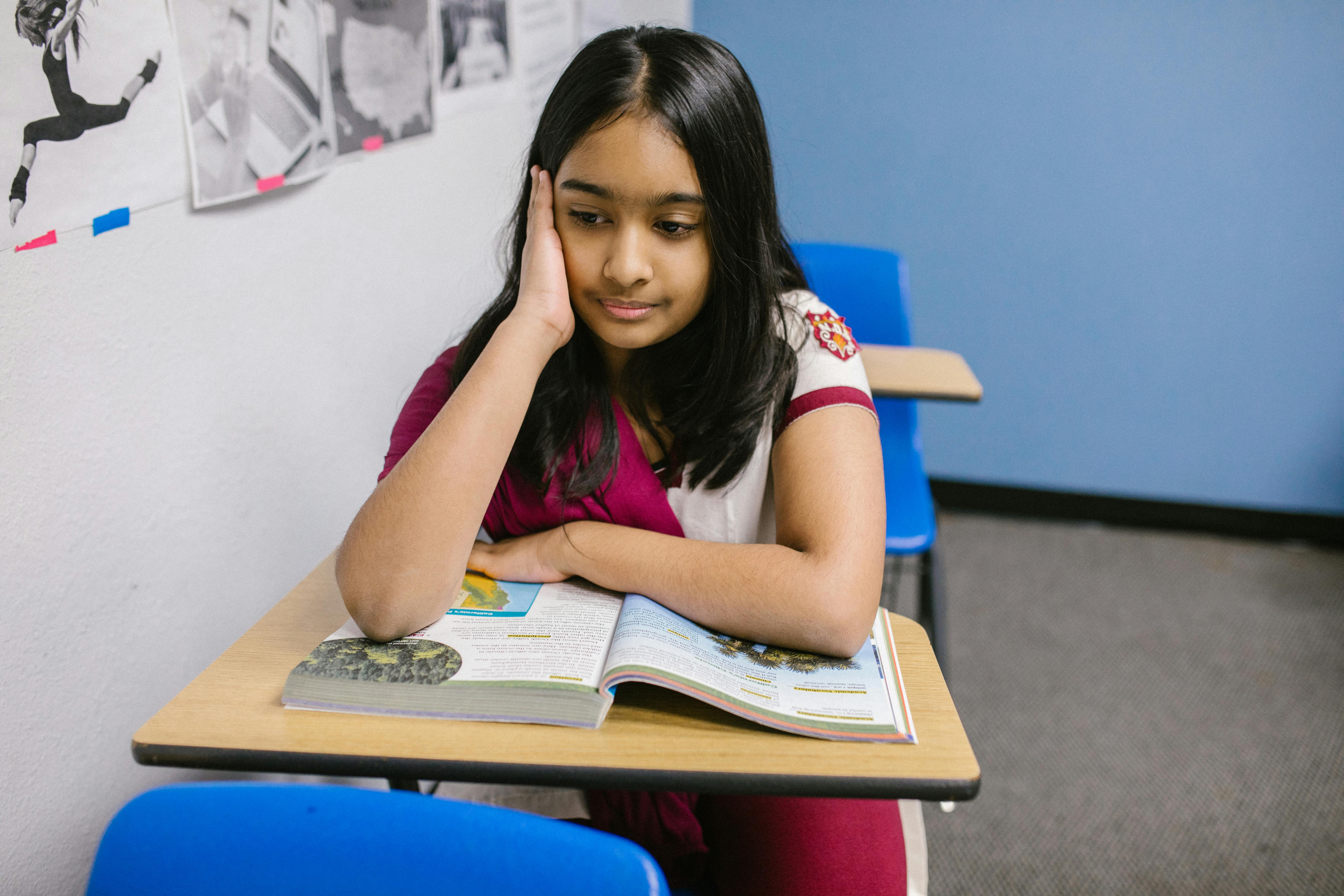
A depressed girl sitting at a desk with a book open in front of her | Source: Pexels
What my parents failed to understand about me was that I was tenacious and resilient. I bided my time quietly obeying their restrictive and sexist gender rules and roles, but in the background, I planned out an exit strategy.
Whatever little money I got from them I saved. I started applying to colleges behind their backs, despite being strictly prohibited from going to university. After graduating from high school, I sprung a surprise on them, telling them I was moving out and wanted to be independent!
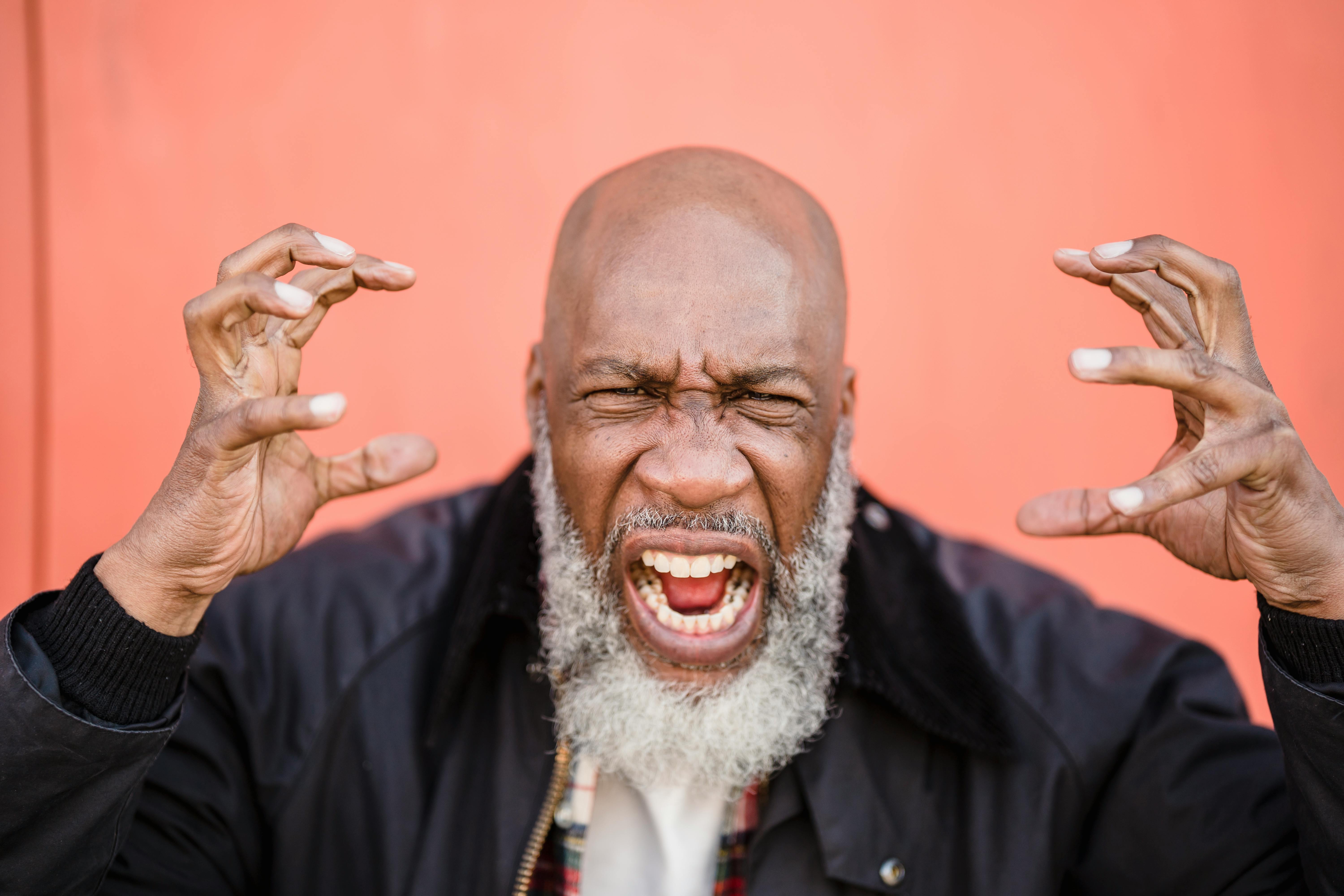
An angry older man gesturing with his hands while shouting | Source: Pexels
"You're a disrespectful little girl!" my father admonished me as he stood towering above me. I won't lie, I was very scared but knew I had to stand my ground. My mother didn't say anything but stood meekly beside him, looking disappointed in the path I'd chosen.
I decided to tell them my plans while my brothers were all out of the house that day, as I didn't want to get them pulled into the drama, or worse yet, risk having them siding with our parents.
"It's my choice to make," I replied quietly but defiantly as I gathered my packed bags and walked toward the front door. "Don't think of coming back here if you walk out of that door!" my father yelled as I defied him once more.

A woman carrying a bag and dragging her luggage | Source: Pexels
The truth is, I had gotten a scholarship to a college I liked but had to work twice as hard as the other students because I didn't have the funds needed for a decent place, food, or clothes. But at least my books and tuition were paid for in full for the next three years.
I scrummaged and begged for shelter from classmates to survive. Sometimes I washed at gas stations or slept at homeless shelters, but not once did I call home asking to be saved. I was determined to do this on my own.
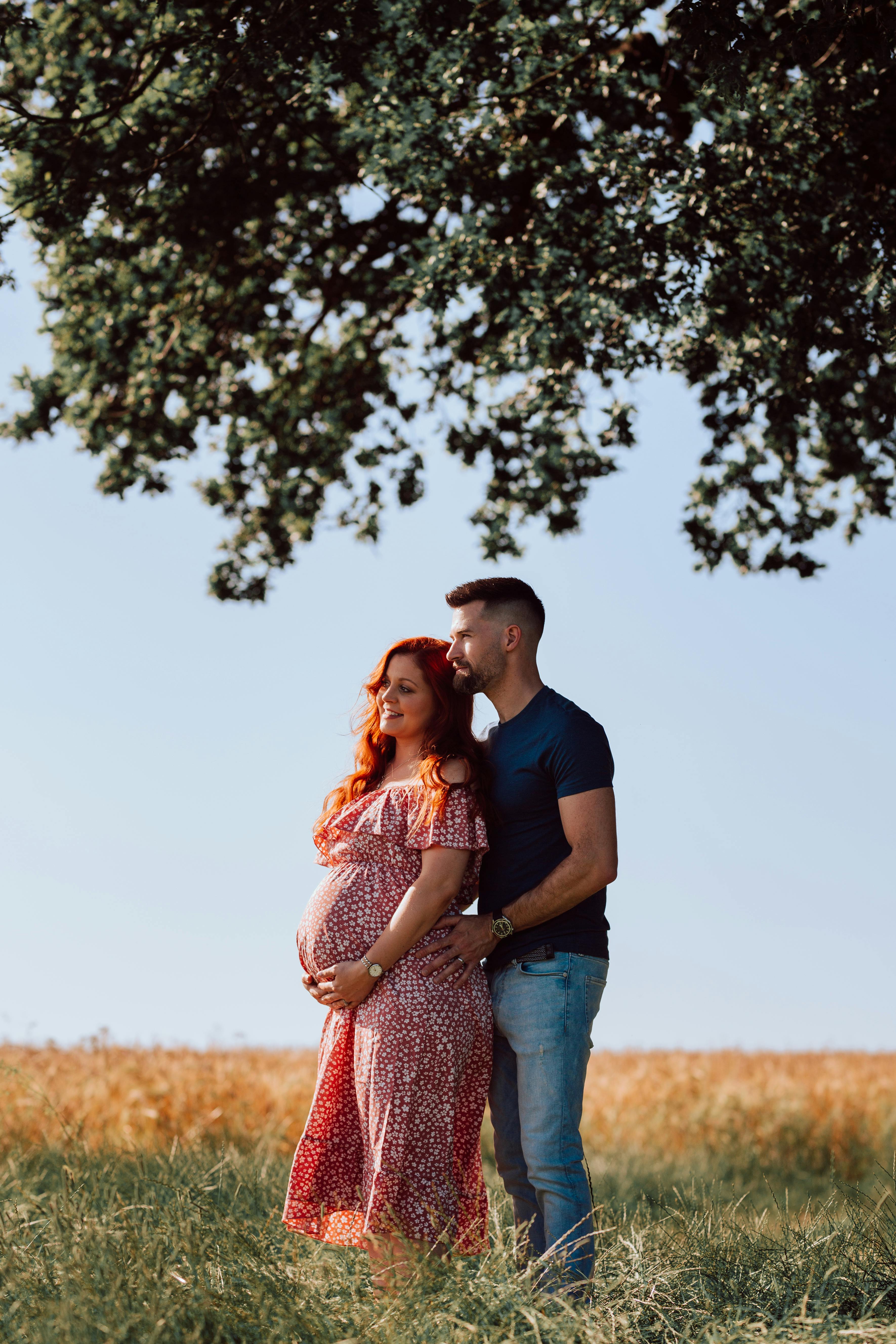
A pregnant woman standing with her husband | Source: Pexels
Years after having no contact or communication with my family, I received a call from my parents who said they wished to see me. At this point, I was successful in my chosen science, technology, engineering, and mathematics (STEM) field, married to a wonderful and loving man, and expecting our first child - a baby girl.
I agreed to meet my parents out of curiosity, to be honest.
It started in a park, the kind of place where you'd expect picnics and laughter, not the unraveling of years of familial tension. My parents, sitting across from me, were a picture of nervous anticipation. I was steeling myself for disappointment.

An upset older woman sitting on a bench holding a beverage | Source: Pexels
"I'm sorry if we caused you any pain," my father began, his voice tinged with something that sounded almost, but not quite, like regret.
"And we really want to move forward, honey," my mother added, her eyes avoiding mine.
I felt a knot tighten in my stomach. "But what exactly are you sorry for?" I pressed, needing them to acknowledge the depth of their disregard for my ambitions.
They exchanged glances, a silent conversation passing between them before my father answered, "We just want to leave the past behind us."

An elderly couple sitting on a bench by the lake | Source: Pexels
Frustrated, I laid out my terms, "If you're truly sorry, then compensate me for my education. The same way you did for my brothers." The words hung between us, heavy and charged.
My mother's response was immediate, her tears a testament to her shock. My father, incredulous, dismissed my demand, "You can't be serious!" he said, reverting to his old ways.
I left them in the park, the gap between us wider than ever.
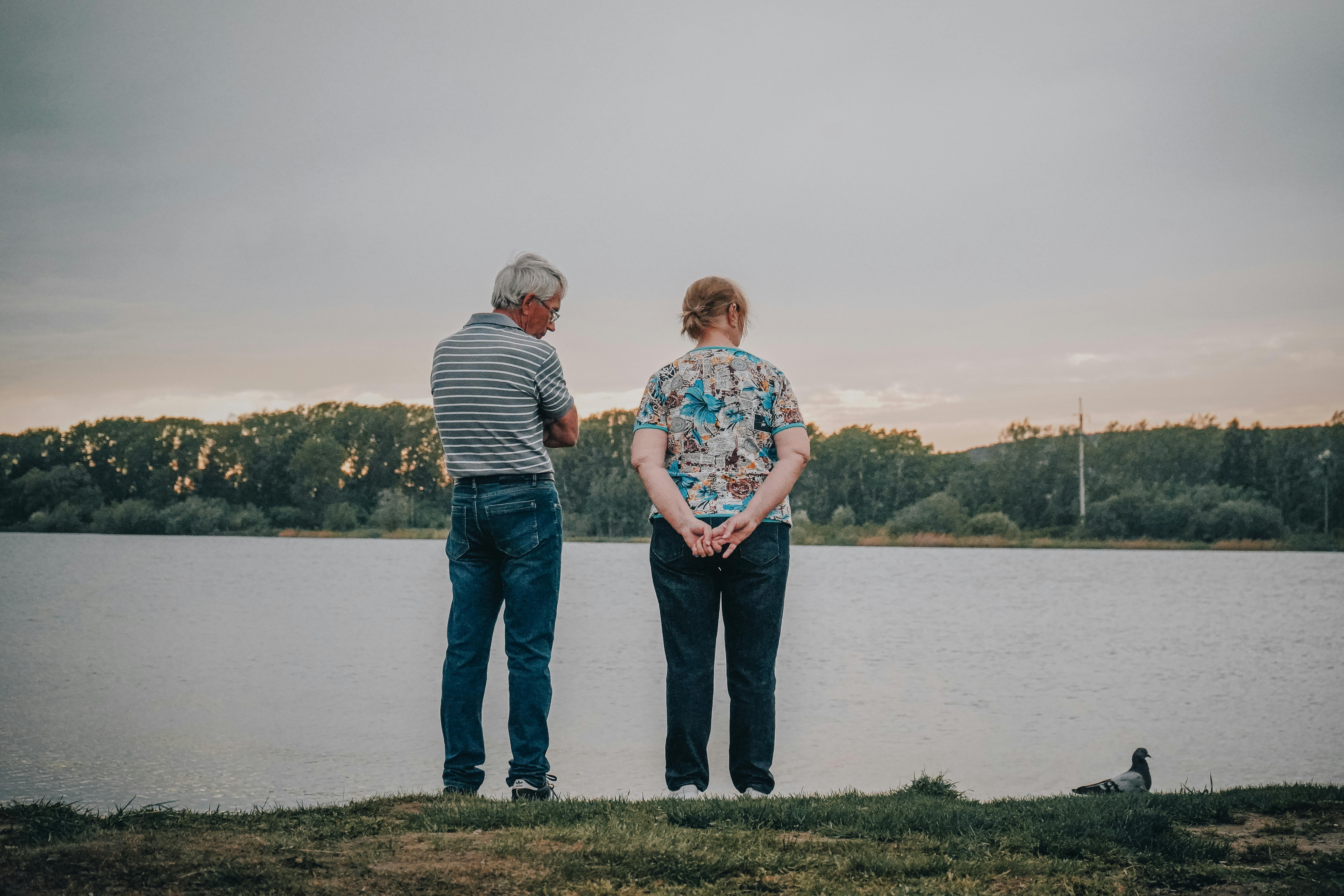
An elderly couple standing by a lake | Source: Pexels
The aftermath was a series of calls from my brothers, chastising me for what they saw as an unreasonable stance. "You're just being hurtful," they said, unaware of the full extent of the disparity in treatment we'd received from our parents.
Then, one ordinary afternoon, my phone rang, displaying my oldest brother's name. Expecting another lecture, I answered with a terse, "I'm not in the mood for family drama."
His response caught me off guard. "No drama. I called because something arrived for you here by mistake. Check your postbox?"

A woman looking at her phone reluctantly | Source: Pexels
Curiosity piqued, I found the envelope he mentioned. Inside was a letter that would forever alter my perspective on my brothers and the possibilities of reconciliation.
"We're sorry," the letter began with a simple admission that opened the floodgates to a profound apology. They detailed how a discussion with our parents after the park meeting revealed the truth about my education and the sacrifices I had made. They were appalled, having been kept in the dark all these years.
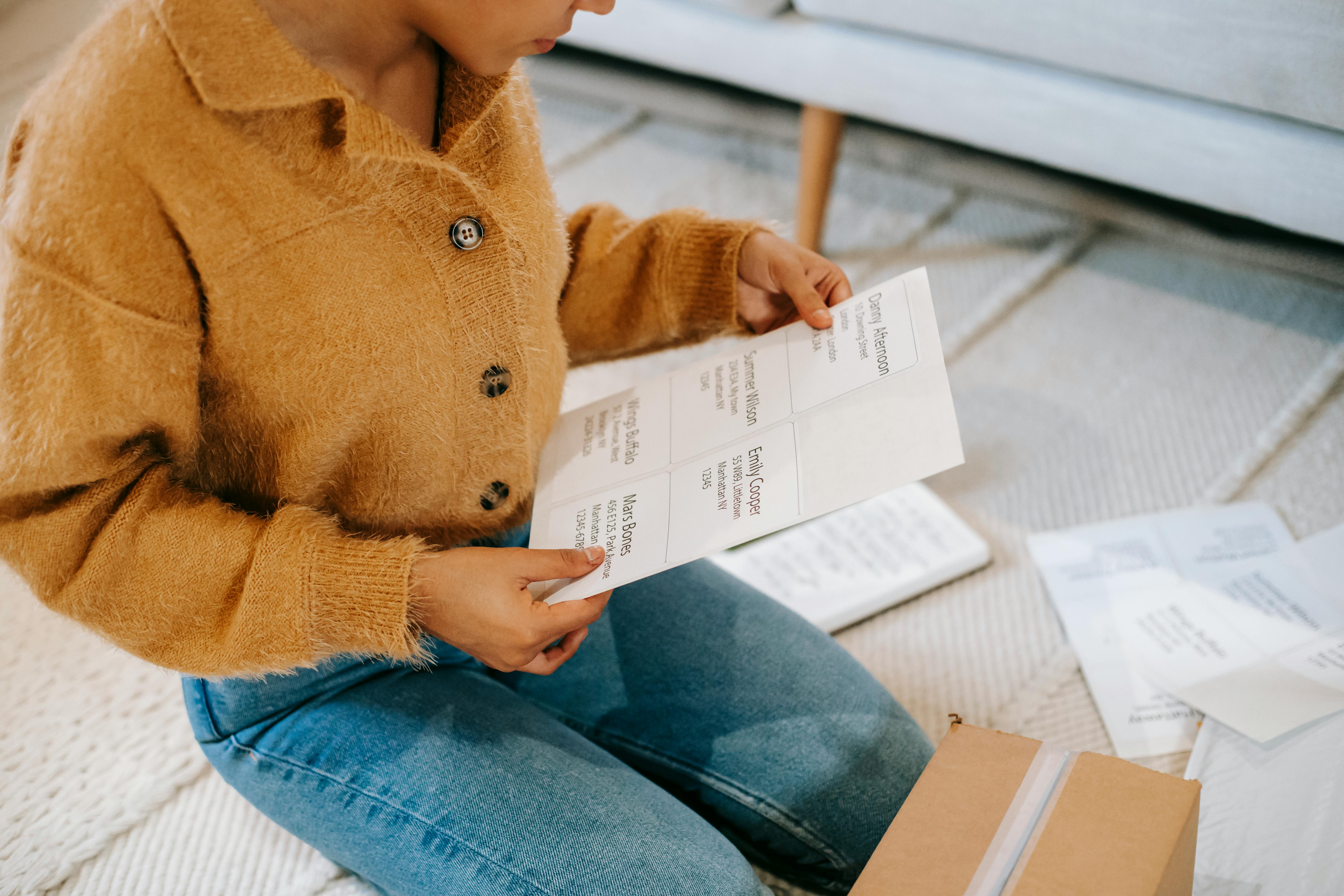
A woman reading a letter | Source: Pexels
"We can't change the past," the letter continued, "but we can make sure the future is different." They outlined how they were not only reimbursing me for my $100,000 educational expenses but also establishing a scholarship for women in STEM, inspired by my struggle and resilience.
The gesture was more than a financial relief; it was an acknowledgment of my fight and a pledge for a more equitable future.
I dialed my brother's number, emotions swirling. "I got the letter," I said, my voice shaking.
"Yeah," he replied, a warmth in his voice I hadn't heard in a long time. "We should've seen it sooner. You deserve to feel equal, and we're fixing that."
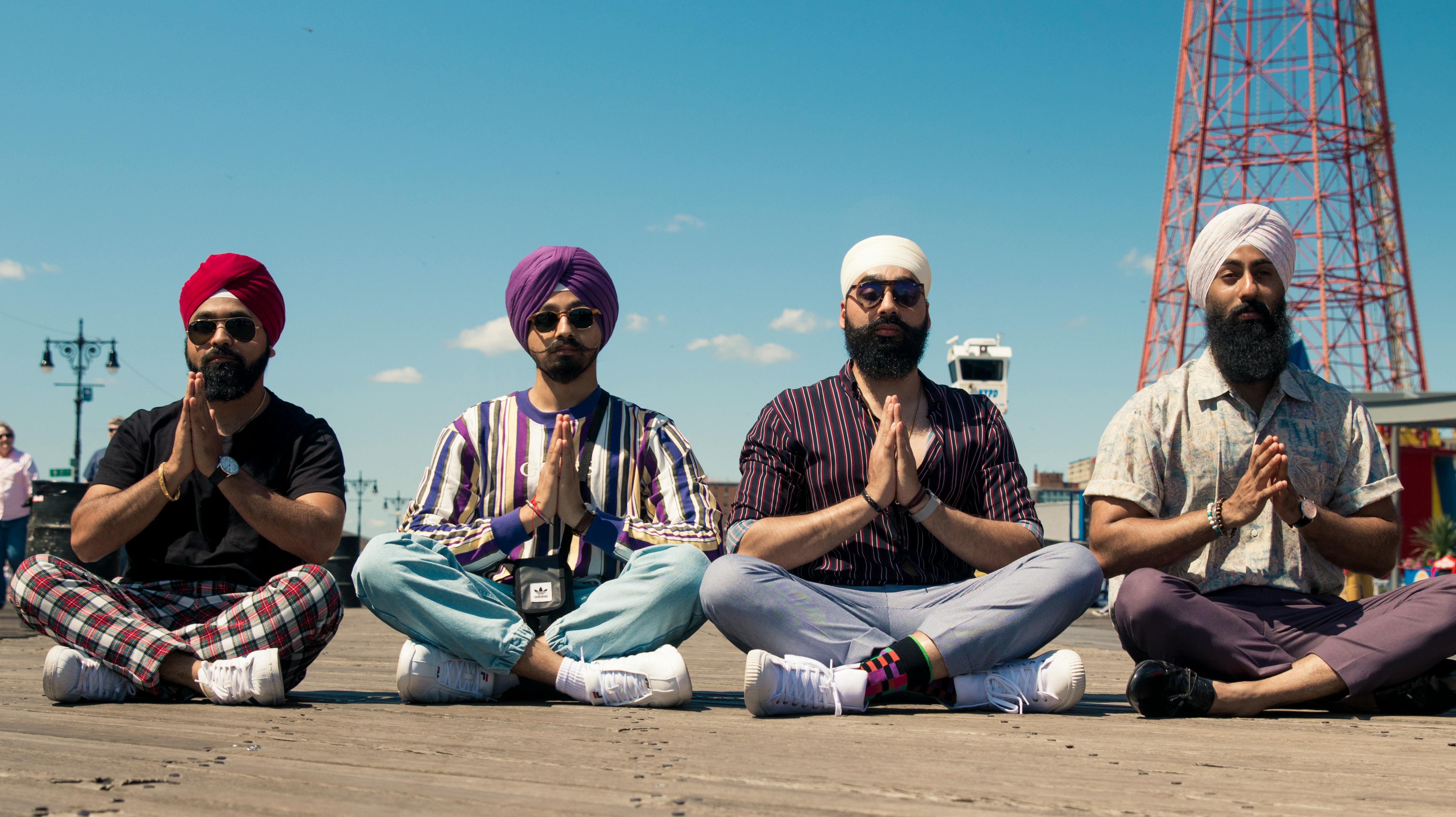
Four men sitting cross-legged with hands in prayer | Source: Pexels
Their actions sparked a transformation within our family. Our parents, confronted by their sons' united front, began to question and dismantle the harmful beliefs they had clung to for so long. This wasn't merely about money; it was about recognizing my worth and challenging the very foundations of our family's dynamics.
The family meetings that followed were filled with difficult conversations, tears, and, ultimately, healing. We discussed everything from gender roles to support systems, laying the groundwork for a family ethos rooted in equality and understanding.
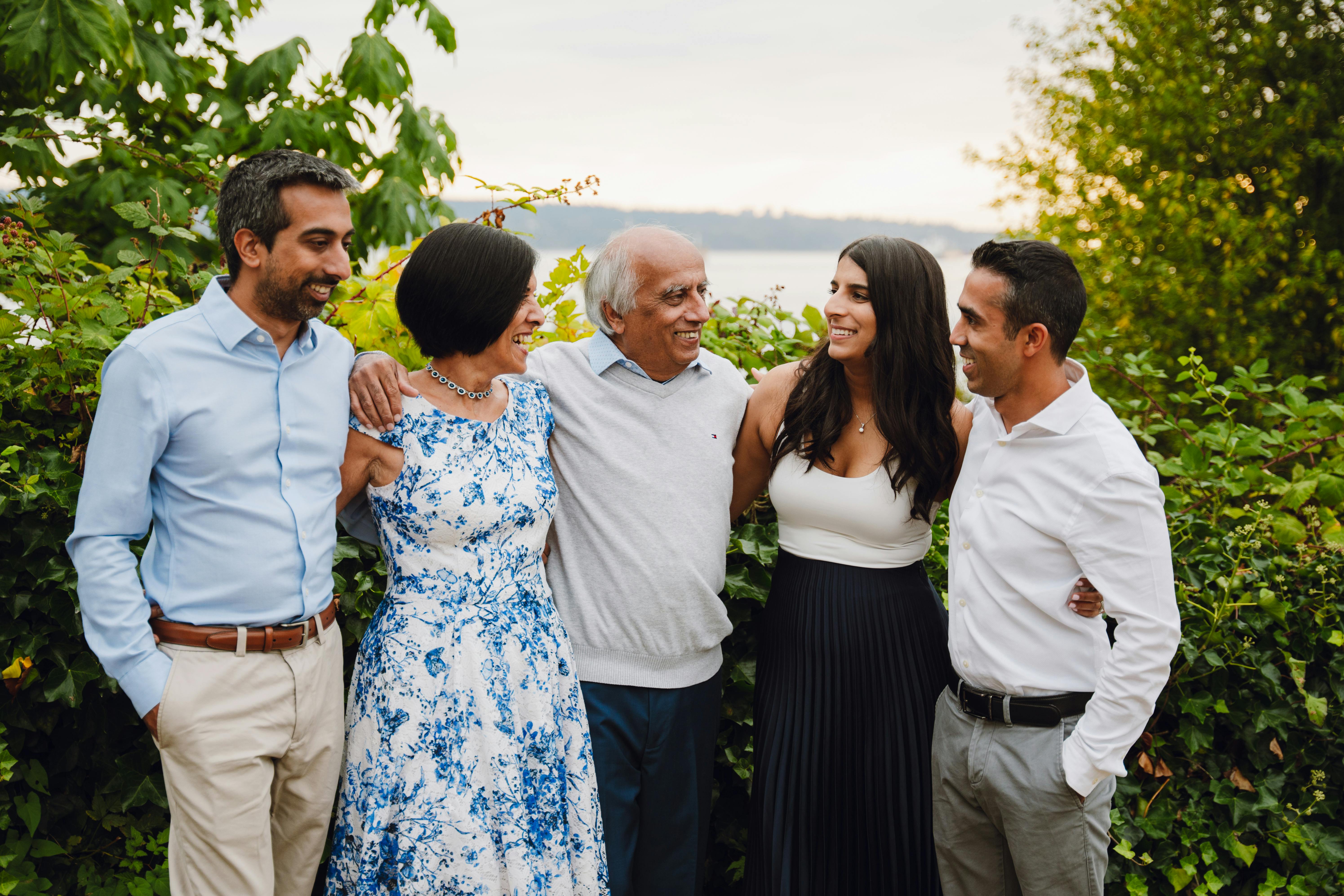
A happy family embracing while gathered together | Source: Pexels
My parents' decision to finance my daughter's future education was their way of contributing to this new chapter, an attempt to right the wrongs of the past.
My story evolved into something much greater: a testament to the power of solidarity, the importance of
acknowledging injustice, and the possibility of change. It's a reminder that sometimes, the most profound transformations come from the most unexpected places.

A couple embracing their baby | Source: Pexels
Those who were touched by that story will be moved by the following:
In a heartfelt recount shared on Reddit's "AITA" forum, a man with an Asian heritage opened up about his tumultuous relationship with his father. Growing up, his father's stern demeanor was a constant presence, enforcing strict rules that, if not adhered to, resulted in him being kicked out of their modest home in a less-than-ideal neighborhood.

An upset and depressed boy sitting outside | Source: Pexels
This form of discipline was applied for academic shortcomings, tardiness, or breaking curfew, leaving him to weather the outdoors with just a sleeping bag.
The narrative unfolds with the man's struggle for independence at 18, leading to estrangement from his father as he toiled to fund his education and pave a path for himself. Years later, now 29 and with a family of his own, the man faced a poignant moment when his father, burdened by his own set of troubles following the loss of his business and financial stability, sought reconciliation amid the grief of the man's mother passing.

An upset man pointing a finger while reacting to something | Source: Pexels
The encounter stirred a whirlpool of emotions, heightened by the revelation that his father had attempted to mend bridges through financial gestures over the years. Yet, the man's response, mirroring the harshness he once faced, was to place a sleeping bag on the lawn for his father, a symbolic gesture of their fractured relationship.
Amidst this complex emotional landscape, the man's wife and friends offered contrasting perspectives. His wife saw his father's actions as tough love, while his friends, echoing cultural sentiments, labeled the man as disrespectful for not recognizing his father's intentions.

A man bonding with his wife and child | Source: Pexels
Torn by these views and his own turbulent history, he sought the wisdom of the Reddit community, which largely saw the father's past actions as emotionally damaging. This story, woven with themes of hardship, estrangement, and the quest for forgiveness, captures a profound human experience.